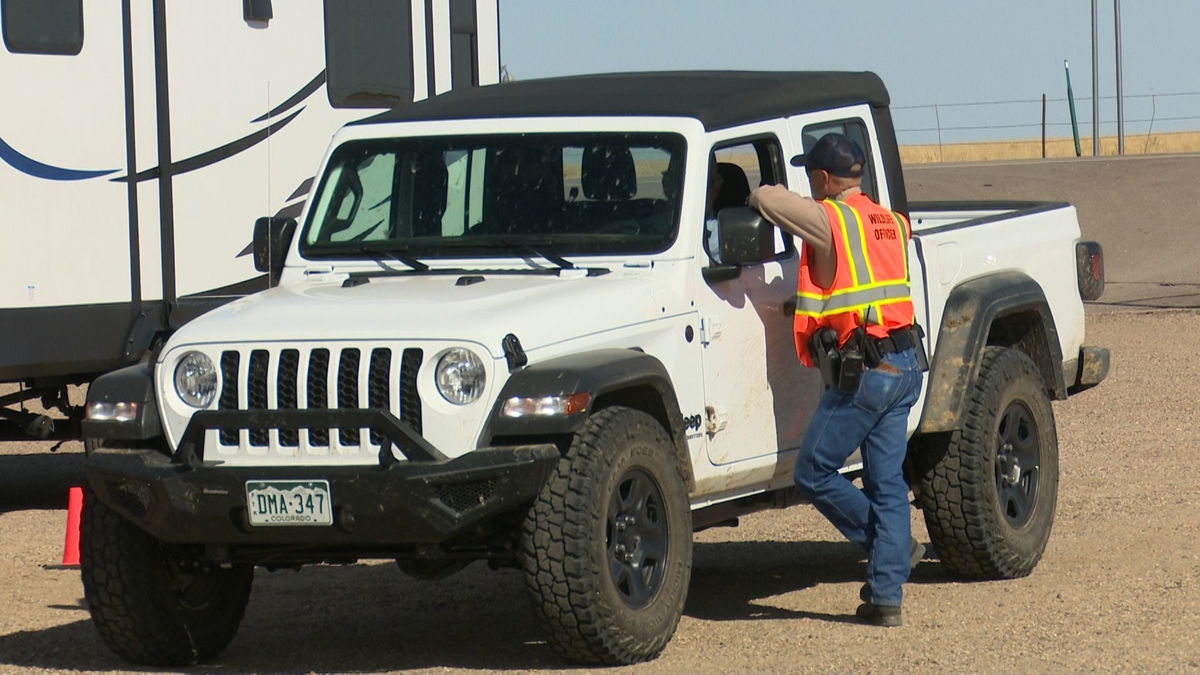Colorado Parks and Wildlife conducts checkpoints during a busy hunting weekend
COLORADO SPRINGS, Colo. (KRDO)-- Saturday, Colorado Parks and Wildlife (CPW) had crews out at checkpoints about an hour east of Colorado Springs at Punkin Center. They were stopping drivers that had been hunting. Hunters were required to go to the check station to get their vehicles checked. According to CPW, they have been planning this for around 6 months.
Multiple law enforcement agencies were out there on the scene.

"We have to coordinate with CDOT, state patrol, and then within ourselves as well. And so we have to get formal approvals from all those agencies and just make sure that what we're doing on the highway meshes with what they want from us to do and that we're in compliance with all of their guidelines. And then the same with state patrol as well, since we are diverting traffic," said Ethan Pruitt, district wildlife manager.
CPW said they chose to conduct checkpoints on Saturday because it was their opening weekend for pronghorn season, one of their busiest weekends.

"This weekend's really important. It's the opener of our rifle pronghorn season. It's one of the busiest seasons that we have on the Eastern Plains in this area. And so there's a lot of hunters out and about. There's a lot of, information that we can collect on the biology side and then also just doing those compliance checks, making sure everyone's following the law," said Tim Kroening, area wildlife manager.
According to CPW, they have not had a checkpoint at the Punkin Center since 2016. During their last checkpoint, they had around 130 vehicles come through the check station. Saturday, they expected to check 150-160 cars.
Kroening said the 6-month operation had been a heavy lift from staff across Colorado. They had officers from across the state come out to help with this operation. They had officers from Fort Morgan Brush, Denver, Cheyenne Mountain State Park, Colorado Springs, and Lamar. They had around 40 officers come in and out throughout the day.
One of the primary purposes behind the checkpoints is to get biological data. Crews record if the person has harvested any wildlife or not, whether it was on public or private land.
"It just helps give us more data to take back to our biologist," said Pruitt.
CPW is also making sure hunters are following the law. Kroening said he has seen over bagging of fish that was being transported across the state, but that's just one of the violations he saw.
" We could see illegal wildlife, whether that's a pronghorn or some sort of other wildlife, we could see that here on the check station. Everybody could make a mistake. So not voiding your carcass tag. Um, something more minor, like not removing the evidence of sex or not even having it at all. Those are all things that we could see at this check station," said Kroening.
CPW said they have been giving out citations depending on the severity of the violation. The citations could be anywhere between $100-$1,000.
CPW told KRDO that they plan on continuing to have checkpoints throughout the state to enforce the laws.
